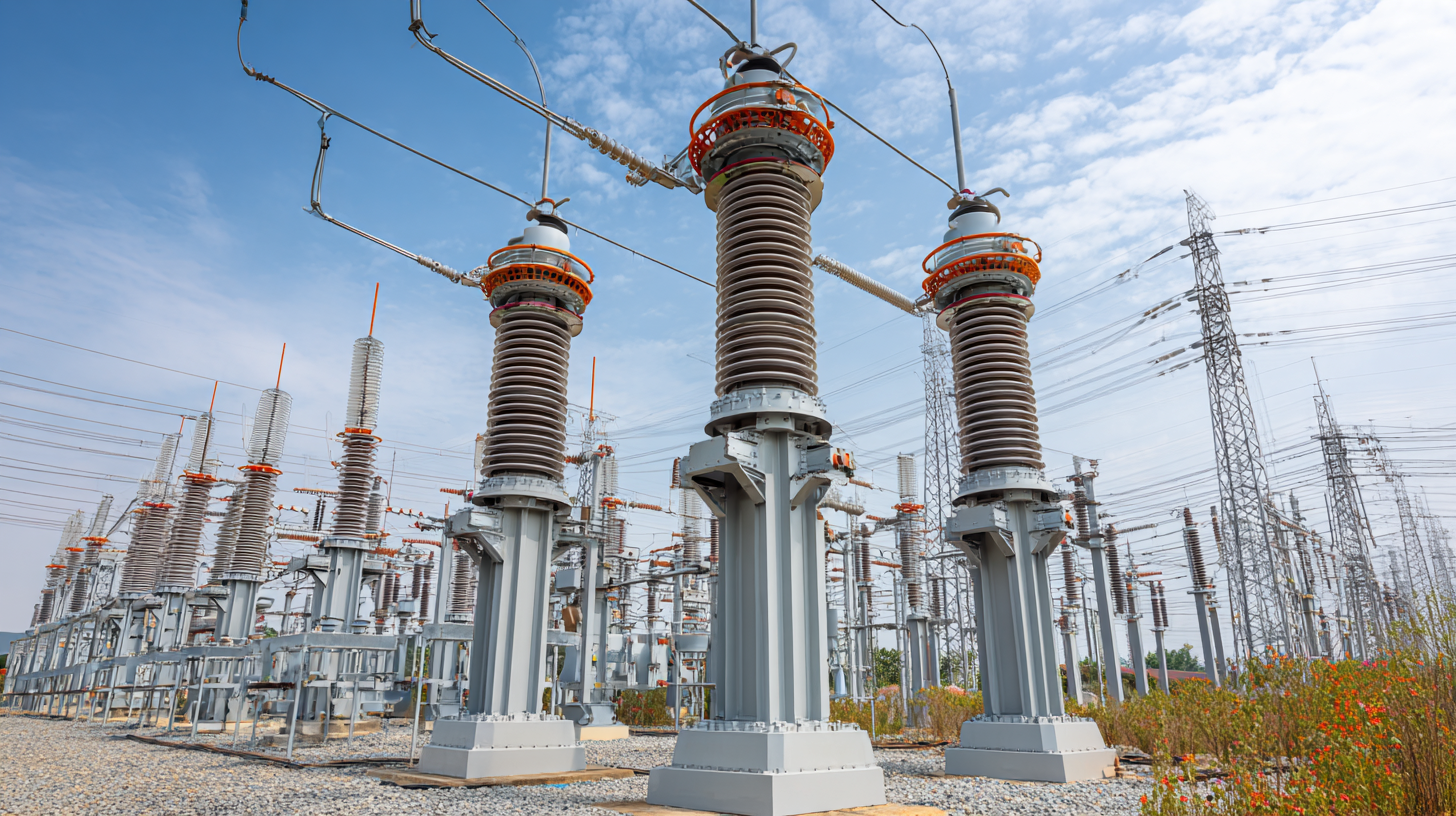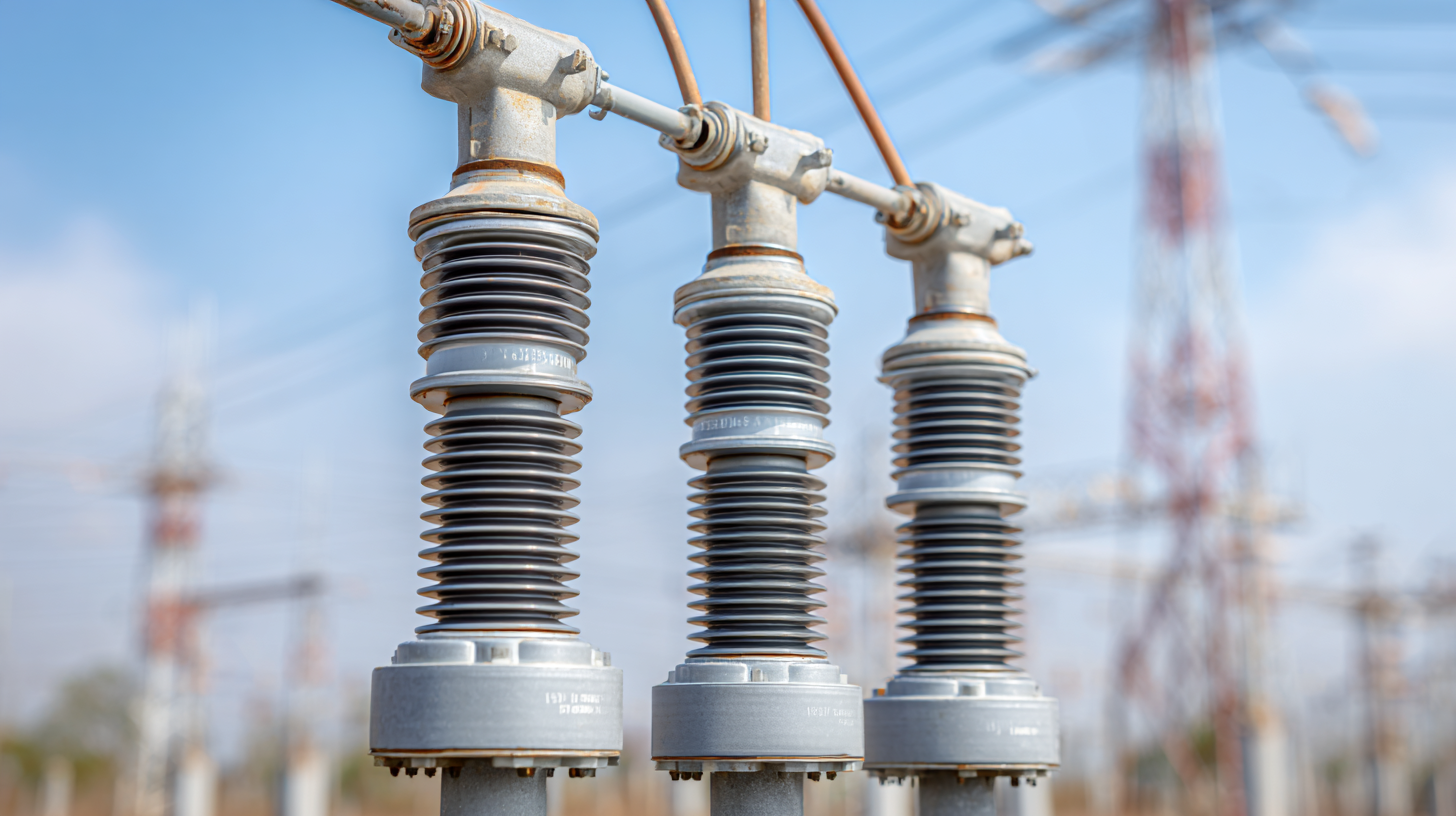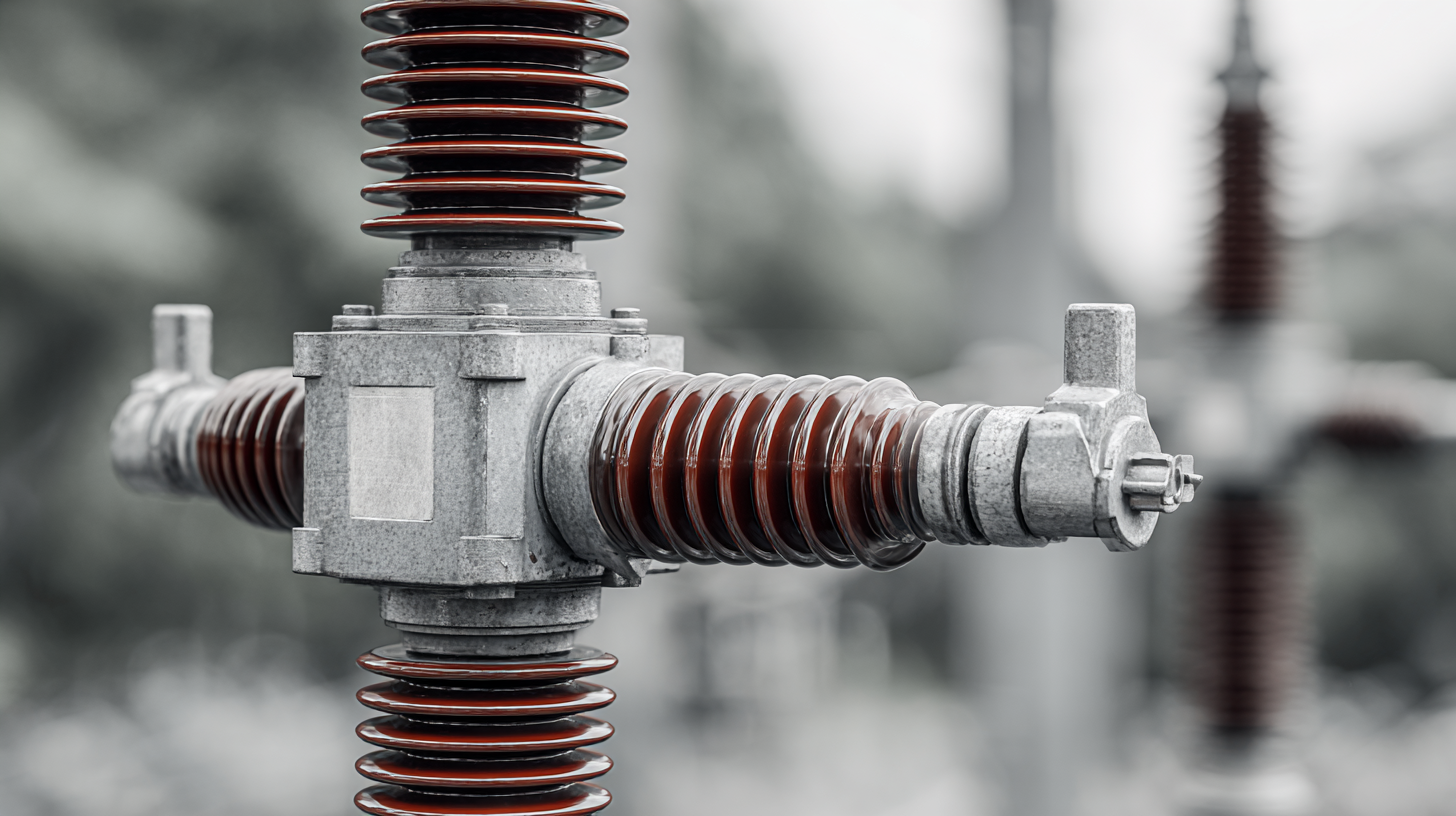Leave Your Message
In the dynamic landscape of global trade, the demand for reliable electrical infrastructure has significantly increased, particularly in regard to Medium Voltage Post Insulators. According to a recent market analysis by Leading Edge Research, the global market for medium voltage insulators is expected to reach $2.5 billion by 2025, driven by the expanding electrical networks in developing nations and the ongoing renovation of aging infrastructure in developed regions. As businesses navigate the complexities of export certification standards, understanding the advantages of durable after-sales services and maintaining cost-effective maintenance practices becomes crucial. This blog will explore how investing in high-quality Medium Voltage Post Insulators not only enhances operational efficiency but also positions companies for success in the ever-evolving global marketplace. By examining the latest insights and innovations in this sector for 2023, we aim to provide actionable strategies for maximizing both performance and profitability in global trade.

Export certification standards are crucial for manufacturers of medium voltage post insulators looking to penetrate international markets. These standards serve as a benchmark for assessing the quality and safety of electrical components, ensuring they meet specific regulatory requirements set by various countries. By understanding these certification processes, businesses can streamline their export efforts and enhance their competitiveness in the global trade arena.
Navigating export certification involves familiarizing oneself with the varying standards across different regions. For instance, the IEC (International Electrotechnical Commission) standards are widely recognized, but local regulations in specific countries might impose additional requirements. Companies must ensure their products not only comply with international guidelines but also adhere to any local mandates to avoid potential setbacks. Investing in thorough testing and certification processes can significantly enhance product credibility and foster trust with potential customers abroad.
This chart illustrates the export volume of medium voltage post insulators across different regions in 2023. The bars represent the number of units exported, highlighting Asia and Europe as the leading markets.
In the rapidly evolving landscape of global trade, understanding the key factors influencing the market for electrical insulators is crucial for success. One significant aspect is compliance with export certification standards, which differ from country to country. As countries implement stricter regulations to ensure safety and quality, manufacturers must stay informed about these standards to avoid costly disruptions.
**Tip:** Before entering a new market, conduct thorough research on the specific certification requirements for electrical insulators in that region. Engaging with local experts or leveraging industry networks can provide invaluable insights.
Another critical element is the ongoing technological advancements in medium voltage post insulators. These innovations not only enhance performance but also influence pricing strategies in the global market. Manufacturers who invest in R&D can differentiate their products and gain a competitive edge.
**Tip:** Stay updated on the latest technological trends by attending industry trade shows and conferences. Networking with professionals can lead to potential collaborations that propel your business forward in the global trade arena.
In today's rapidly evolving global trade landscape, understanding the essential documentation for successful export certification is crucial. As businesses expand their reach internationally, compliance with various standards not only facilitates smoother transactions but also builds credibility in foreign markets. One key aspect of this process is having the requisite paperwork in place, such as certificates of origin, export licenses, and necessary compliance certifications. These documents serve as verification of quality and legal compliance, opening doors to new opportunities.
**Tips for Export Documentation:**
1. Always conduct thorough market research to familiarize yourself with the specific documentation required for your target country. Each region has its own set of regulations, so being informed can save time and avoid costly errors.
2. Ensure accuracy in all your documents. Double-check details like product descriptions, quantities, and values to prevent shipments being held up due to discrepancies.
3. Stay updated on changes in export regulations and certification standards. Regularly reviewing these guidelines will help you adjust your processes as needed and maintain compliance.
By focusing on efficient documentation and compliance strategies, exporters can enhance their chances of success in the global market, particularly within specialized sectors like medium voltage post insulators.
| Documentation Type | Description | Importance | Obtaining Authority |
|---|---|---|---|
| Export License | A government-issued document that allows the export of specific goods. | Critical for compliance with national and international laws. | Ministry of Commerce |
| Certificate of Origin | Document certifying the country of origin of the goods being exported. | Essential for trade agreements and tariff purposes. | Chamber of Commerce |
| Quality Inspection Report | Report detailing the quality standards met by the products. | Ensures that products meet essential quality requirements. | Independent Inspection Agency |
| Safety Certification | Document verifying that products meet safety standards. | Required for most international markets to ensure product safety. | International Safety Authorities |
| Consignment Invoice | Invoice outlining the details of the shipment and pricing. | Essential for customs clearance and payment processing. | Exporting Company |
Navigating compliance with international standards is more critical than ever for businesses looking to thrive in the global marketplace. As countries implement stricter regulations aimed at promoting sustainability, companies must adapt to these evolving requirements to remain competitive. The expanding landscape of compliance demands, influenced by factors such as technological advancements and environmental concerns, necessitates a proactive approach. Businesses must understand and integrate various regulatory frameworks to ensure that their products—notably, medium voltage post insulators—meet both safety and sustainability standards.

To successfully navigate these complex compliance landscapes, organizations can leverage innovative technology and strategies. For instance, adopting data-centric security solutions helps companies manage, track, and report compliance measures effectively. As highlighted by recent developments, firms in sectors like carbon trading and supply chain management are using advanced compliance solutions to meet international regulations. By fostering a culture of compliance and staying informed about the latest certification standards, businesses can enhance their operational efficiency and open new avenues for international trade success.
In the competitive landscape of the insulator industry, successful export strategies have become crucial for companies looking to thrive in global markets. A recent report by MarketsandMarkets highlights that the global market for medium voltage insulators is projected to reach $4.5 billion by 2026, growing at a compound annual growth rate (CAGR) of 6.2% from 2021. This growth is largely driven by increasing investments in renewable energy and the upgrading of aging electrical infrastructure. Companies that invest in understanding and adhering to export certification standards can gain significant advantages, ensuring compliance with international safety and performance requirements.

Case studies of leading firms illustrate the effective implementation of export strategies in this sector. For instance, a prominent insulator manufacturer in Europe leveraged ISO 9001 certification to enhance their credibility in emerging markets. By aligning their products with international standards, they not only improved their product quality but also streamlined their supply chain, resulting in a 30% reduction in time-to-market. Similarly, a North American company focused on tailored marketing strategies and local partnerships in Southeast Asia, which ultimately led to a 50% increase in market share within two years. These examples demonstrate that understanding certification standards and adapting to market dynamics can significantly enhance export success in the insulator industry.
